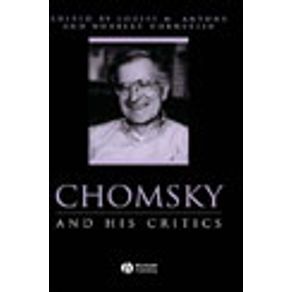In this compelling volume, ten distinguished thinkers – William G. Lycan, Jeffrey Poland, Galen Strawson, Frances Egan, Georges Rey, Peter Ludlow, Paul Horwich, Paul M. Pietroski, Alison Gopnik, and Ruth Garrett Millikan – address a variety of conceptual issues raised in Noam Chomsky's work on mind and language.Topics covered include:the ontological commitments inherent in a Chomskian approach to linguistic competencethe possibility of systematic referential semantics for natural languagewhether we can learn anything about the foundations of language by adopting an evolutionary perspectivewhether the ‘theory theory’ in developmental psychology counters Chomsky's arguments for nativismthe relevance and urgency of the mind–body problem in the post-Newtonian world.These analyses are followed by substantial responses from Chomsky himself. The result is a provocative and engaging discussion of Chomsky’s work on questions of central importance to theories of mind and language. In this compelling volume, ten distinguished thinkers – William G. Lycan, Jeffrey Poland, Galen Strawson, Frances Egan, Georges Rey, Peter Ludlow, Paul Horwich, Paul M. Pietroski, Alison Gopnik, and Ruth Garrett Millikan – address a variety of conceptual issues raised in Noam Chomsky's work on mind and language.Topics covered include:the ontological commitments inherent in a Chomskian approach to linguistic competencethe possibility of systematic referential semantics for natural languagewhether we can learn anything about the foundations of language by adopting an evolutionary perspectivewhether the ‘theory theory’ in developmental psychology counters Chomsky's arguments for nativismthe relevance and urgency of the mind–body problem in the post-Newtonian world.These analyses are followed by substantial responses from Chomsky himself. The result is a provocative and engaging discussion of Chomsky’s work on questions of central importance to theories of mind and language.



